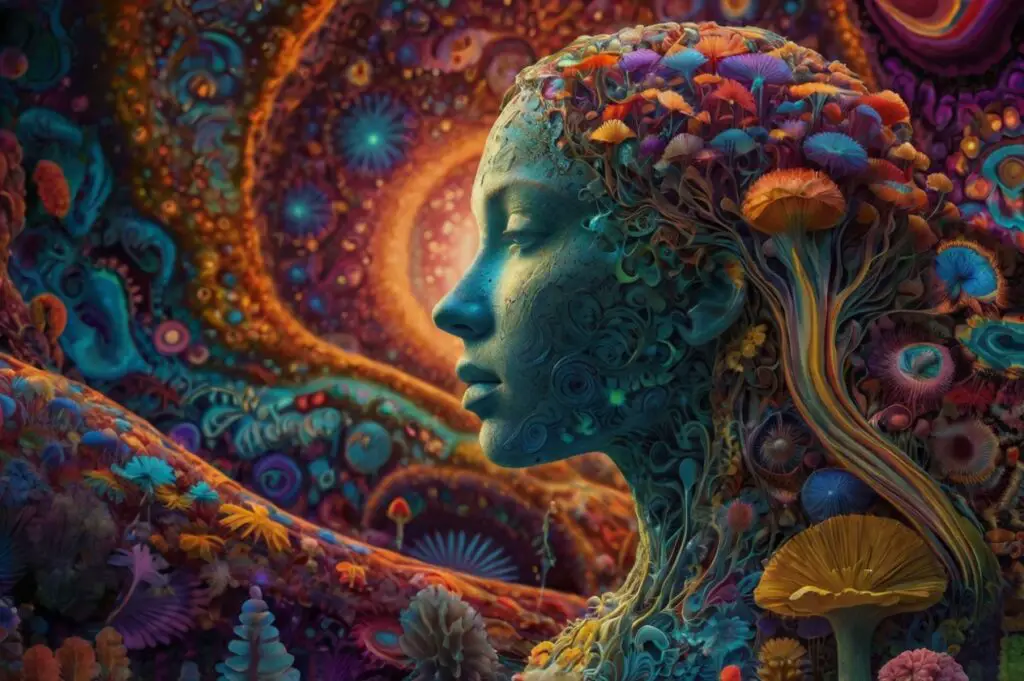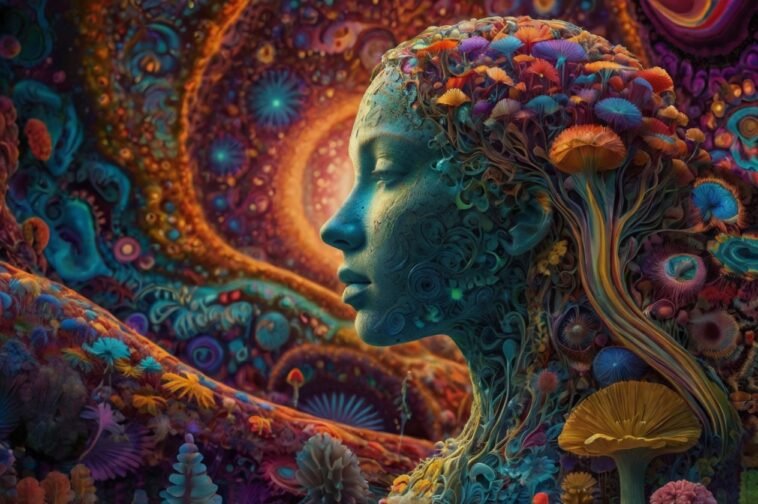
Psychedelics are making a comeback in both pop culture and science. Researchers are exploring their potential to treat mental health conditions, but there are also concerns about their misuse. Understanding how these substances affect the brain is more important than ever. This article breaks down what psychedelics do to the brain, their long-term effects, ethical questions, and more—using simple, clear language.
What Are Psychedelics?
Psychedelics are a class of psychoactive substances that alter perception, mood, and cognition. Common examples include:
- LSD (Lysergic acid diethylamide)
- Psilocybin (found in “magic mushrooms”)
- DMT (Dimethyltryptamine)
- Mescaline (found in peyote and San Pedro cactus)
Unlike other drugs, psychedelics primarily interact with serotonin receptors in the brain, leading to profound changes in consciousness.
While historically used in spiritual and ceremonial contexts, modern science is uncovering their potential for treating depression, anxiety, and PTSD.
How Psychedelics Affect the Brain
Psychedelics have a unique way of interacting with the brain, leading to profound changes in perception, thought, and emotion.
Here’s how they work:
Neurotransmitter modulation
Psychedelics mainly target specific serotonin receptors in the brain, known as 5-HT2A receptors.
These receptors are part of the system that influences mood, perception, and thinking.
By activating them, psychedelics enhance brain activity, which can result in vivid imagery, intense emotions, and new ways of thinking.
For instance, research published in Cell Reports found that psilocybin, the active compound in magic mushrooms, increases the release of glutamate—a chemical crucial for learning and memory.
Altered brain activity
Psychedelics also affect the default mode network (DMN), a group of brain regions that work together when we’re focused on ourselves or daydreaming.
When the DMN becomes less active, people often experience “ego dissolution,” a feeling of losing their sense of self and connecting deeply with the world around them.
Research from PNAS (Proceedings of the National Academy of Sciences) shows that LSD increases connectivity between brain regions that typically don’t communicate.
This heightened connectivity may explain the enhanced creativity and insight reported by users.
Neural plasticity
One of the most promising effects of psychedelics is their ability to enhance neuroplasticity—the brain’s natural ability to create new connections and adapt.
This flexibility is essential for learning new skills, recovering from trauma, and overcoming negative patterns of thought.
A 2018 study in Cell Reports revealed that psychedelics like psilocybin promote dendritic growth, which could lead to improved cognitive flexibility and emotional resilience.
These effects might explain their potential for addressing treatment-resistant depression, where rigid thought patterns dominate.

Potential Long-Term Effects
Psychedelics can have both positive and negative long-term effects, depending on how they are used and individual factors like mental health history.
Here’s a closer look at the potential outcomes:
Positive effects
Improved mental health
Clinical trials have shown that psychedelics, especially when used in guided therapy settings, can significantly reduce symptoms of depression and anxiety.
Psilocybin, in particular, has been effective in helping individuals find relief from these conditions.
Enhanced creativity and openness
Many long-term users report feeling more creative and open to new ideas.
A study published in the Journal of Psychopharmacology found that psychedelics can lead to lasting personality changes, making individuals more curious and adaptable.
Spiritual growth
Psychedelic experiences often provide deep spiritual insights, helping users feel more connected to themselves, others, and the world.
These experiences can lead to greater life satisfaction, a stronger sense of purpose, and overall well-being.
Negative effects
Lingering visual disturbances
Some people experience Hallucinogen Persisting Perception Disorder (HPPD), where visual effects like light trails or halos persist long after the psychedelic experience has ended.
Risk of psychosis
For individuals with a predisposition to mental health conditions like schizophrenia, psychedelics can trigger psychotic episodes or worsen existing symptoms.
Psychological dependency
While psychedelics are not physically addictive, repeated misuse to escape reality or avoid problems can lead to psychological dependence, creating unhealthy patterns over time.

Ethical Considerations
As psychedelics gain popularity, they bring important ethical questions that need attention.
Here are some key issues:
Accessibility
Who should have access to these potentially life-changing treatments?
Right now, many clinical trials focus on specific groups and often leave out marginalized communities.
This raises concerns about making these therapies available to everyone who needs them, regardless of their background or resources.
Cultural appropriation
Many psychedelics, like ayahuasca and peyote, have deep roots in Indigenous traditions.
Ethical use means respecting these cultures, understanding their practices, and avoiding exploitation.
It’s essential to honor the origins of these substances and ensure that Indigenous communities are not sidelined or disrespected in the process.
Consent in therapy
Psychedelic-assisted therapy involves intense and often emotional experiences.
It’s crucial that participants fully understand what they’re agreeing to before starting treatment.
Informed consent helps protect individuals from harm and ensures that they feel safe and supported throughout the process.

Potential Risks
While psychedelics show great promise, they also come with risks that should not be ignored.
Here are some potential downsides:
Bad trips
Psychedelics can sometimes lead to intense fear, paranoia, or emotional distress, especially for those who are unprepared or in an unsafe environment.
These “bad trips” can be overwhelming and may leave lasting emotional effects.
Physical risks
Although rare, psychedelics can cause physical symptoms like an elevated heart rate or nausea.
These effects can be risky for individuals with pre-existing health conditions, such as heart problems.
Legal consequences
In many places, psychedelics are still illegal.
Possession or use can lead to serious legal consequences, even as public opinion and policies begin to shift.
Regulation and Legal Status
The legal status of psychedelics is evolving rapidly as attitudes change and research advances.
Here’s an overview:
Decriminalization efforts
Some cities, like Denver and Oakland, have decriminalized psilocybin, making its use and possession low-priority for law enforcement.
Oregon has gone further, legalizing psilocybin for use in supervised therapeutic settings.
Clinical trials
The medical community is paying close attention to psychedelics.
The FDA has granted “breakthrough therapy” status to psilocybin, speeding up research into its potential for treating mental health conditions like depression.
Global trends
Around the world, the legal landscape varies widely.
For example, the Netherlands and Jamaica allow legal retreats for guided psychedelic experiences, offering people a chance to explore these substances safely.
However, regulations in other countries remain strict.

Final Thoughts
Psychedelics offer an exciting new path in understanding the brain and treating mental health challenges.
While they hold great promise, they also come with risks and raise important ethical questions.
With ongoing research and thoughtful regulation, society can decide how to safely and responsibly use these powerful substances.
FAQs
No. Individuals with a history of psychosis or heart conditions should avoid psychedelics due to potential adverse effects.
Psychedelics show promise in reducing symptoms of depression, but they are not a standalone cure. They work best in combination with therapy.
Recreational use often involves unsupervised exploration, while therapeutic use occurs in controlled environments with trained professionals.
Psychedelics are not considered physically addictive, but psychological dependency can develop in some users.



